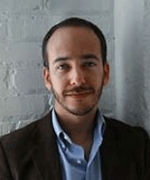
Sixteen years ago, I had a moderate to severe brain injury. I had a lot of rehab and made a good recovery. A year and a half ago, I was in another car crash in which I was struck from the rear by a large truck. At the site of the crash, I was a bit confused but thought I was okay. It didn’t occur to me to have my brain checked.
Now, I am told by friends and family that I am not the same “old me.” I don’t trust anyone, I have lost my job, and have little time that would be considered positive.
How can I find out if my brain was injured again in that second crash? And if so, what sort of treatment should I get?
Once you get a brain injury, it actually increases your likelihood of getting a second injury. That's why it's so important to get a "snapshot" of your brain through neuropsychological — or cognitive — testing. Evaluating the brain's functioning allows people to see what areas of the brain have been affected, and what areas remain strong. Most of the testing relies on verbal or written responses, but several measures rely on other information sources. The testing could take hours or even days to complete. Following the completion and scoring of the tests, a licensed neuropsychologist will present patients with a full report that details the brain's many different areas. You'll be able to see where brain functioning is normal, and where it may fall outside of normal limits.
When a person gets a complete neuropsychological evaluation, it can act as a baseline standard against any future changes.
In the case of a second head injury, you should contact your prior treatment center and ask for any records that may include previous cognitive testing. Once you have these records, you can then take them to a neuropsychologist, who will help you determine any differences that may have resulted from a second brain injury.
When cognitive testing is conducted by a licensed neuropsychologist, the report should also include a specific recommendation for the treatment of any impairments discovered. You can then use that document to pursue a specific course of care, which may include rehabilitation options, therapeutic assistance, or medical management.
As you age, you might also experience changes in brain function. If you find that you seem to be experiencing new challenges many years after a brain injury, it's a good idea to request an updated neuropsychological test, so you can determine if additional care may be helpful.
About the author: Michael Paul Mason
Michael Paul Mason is the founding editor of This Land, a monthly magazine based in Tulsa. Mason's first book, Head Cases: Stories of Brain Injury and Its Aftermath, is an exploration into the harsh realities endured by people with brain injury.


Comments (3)
Please remember, we are not able to give medical or legal advice. If you have medical concerns, please consult your doctor. All posted comments are the views and opinions of the poster only.
Anonymous replied on Permalink
Anonymous replied on Permalink
Anonymous replied on Permalink